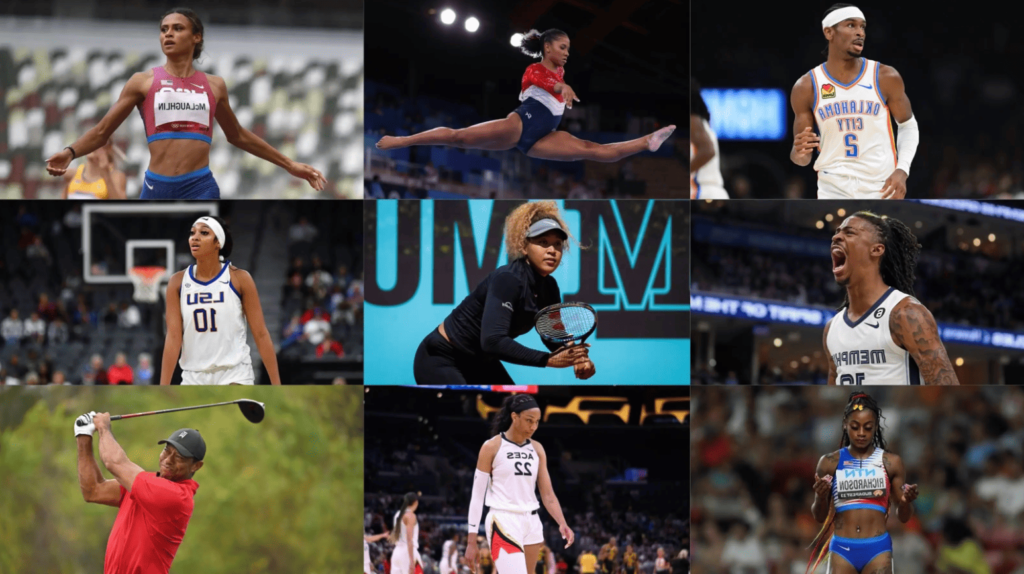Nutrition for Athletes – How to Fuel Your Body for Performance

For athletes, nutrition is just as important as training. What you eat can significantly impact your performance, recovery, and overall athletic progress. Whether you’re a professional athlete or someone working to improve fitness, understanding how to fuel your body optimally is key to success.
In this guide, we’ll explore how athletes can build a performance-enhancing diet, balance macronutrients, time meals for maximum benefit, and choose the right supplements to boost endurance and recovery.

1. Why Nutrition Is Important for Athletes
Athletes have higher energy and nutrient demands compared to non-athletes. Physical activities such as running, strength training, and endurance sports put extra strain on muscles, joints, and the cardiovascular system. Proper nutrition ensures the body has the fuel it needs to perform, recover, and adapt to increased workloads.
Benefits of Proper Nutrition for Athletes:
- Enhanced performance: Adequate nutrition provides the energy needed for sustained, high-intensity activity.
- Improved recovery: After exercise, nutrition helps repair muscle tissues, replenish glycogen stores, and reduce muscle soreness.
- Injury prevention: A well-balanced diet supports joint and bone health, reducing the risk of injury.
2. Macronutrients for Athletes
Athletes require a balanced intake of the three macronutrients: proteins, carbohydrates, and fats. Each plays a specific role in energy production, muscle repair, and overall health.
Proteins: The Building Blocks of Muscle
Protein is crucial for muscle growth, repair, and recovery. It provides the amino acids necessary for muscle repair after intense exercise. For athletes, consuming enough protein can also help preserve lean muscle mass, especially during periods of weight loss or calorie restriction.
Recommended Protein Sources:
- Animal-based: Chicken, turkey, fish, eggs, lean beef.
- Plant-based: Lentils, tofu, tempeh, quinoa.
The recommended protein intake for athletes ranges from 1.2 to 2.0 grams per kilogram of body weight, depending on the type and intensity of training.
Carbohydrates: Your Body’s Primary Fuel Source
Carbohydrates are the most important source of energy for athletes. During exercise, your body breaks down carbohydrates into glucose, which powers your muscles. For endurance athletes, carbohydrates are crucial for sustaining long periods of physical activity.
Recommended Carbohydrate Sources:
- Complex carbs: Whole grains, oats, brown rice, quinoa.
- Simple carbs (for quick energy): Fruits, energy gels, and sports drinks.
The amount of carbs an athlete needs depends on their sport, but a general guideline is 5 to 10 grams of carbs per kilogram of body weight daily.
Fats: Long-Lasting Energy and Hormonal Health
Healthy fats provide a concentrated source of energy and are essential for absorbing fat-soluble vitamins like A, D, E, and K. They also support hormone production, which is crucial for athletes’ recovery and performance.
Recommended Fat Sources:
- Unsaturated fats: Avocados, olive oil, nuts, and seeds.
- Omega-3 fatty acids: Fatty fish like salmon, flaxseeds, and chia seeds.
For athletes, fats should account for roughly 20-35% of daily calorie intake.

3. Hydration and Electrolytes
Hydration is critical for maintaining performance and preventing dehydration, which can cause fatigue, muscle cramps, and a decline in cognitive function.
Importance of Electrolytes:
Electrolytes, such as sodium, potassium, and magnesium, help maintain fluid balance, muscle function, and nerve signaling. During exercise, especially in hot conditions, athletes lose electrolytes through sweat, which need to be replenished.
Hydration Tips for Athletes:
- Drink water throughout the day: Don’t wait until you’re thirsty to hydrate.
- Electrolyte supplements: Use electrolyte tablets or sports drinks during long training sessions or competitions lasting more than an hour.
- Monitor hydration levels: Check urine color—pale yellow indicates proper hydration, while darker urine may suggest dehydration.
4. Meal Timing and Pre-Workout Nutrition
When and what you eat before exercising can significantly affect performance. Pre-workout meals should provide enough fuel for the workout while being easy to digest.
Pre-Workout Nutrition Tips:
- Eat a meal 2-3 hours before exercise: This should include a balance of protein and carbohydrates. For example, a chicken breast with brown rice and vegetables.
- Snack 30-60 minutes before exercise: Opt for something light and easily digestible, like a banana with almond butter or a piece of toast with peanut butter.
Carbohydrate intake before a workout ensures your muscles have sufficient glycogen stores, which are necessary for sustained effort.
5. Post-Workout Recovery: What to Eat After Exercise
Post-workout nutrition is critical for replenishing glycogen stores, reducing muscle soreness, and accelerating recovery.
Key Components of Post-Workout Nutrition:
- Protein: Essential for muscle repair and growth. Aim for 20-30 grams of protein after a workout.
- Carbohydrates: Replenish glycogen stores with complex carbs such as sweet potatoes, oats, or whole grains.
- Hydration: Replace fluids lost during exercise by drinking water and electrolytes.
Example of a Post-Workout Meal:
- Grilled chicken with quinoa and steamed broccoli.
- A protein smoothie with a banana, spinach, and almond milk.
Post-workout nutrition is most effective when consumed within 30-60 minutes of finishing your exercise.
6. Supplements for Athletic Performance
While whole foods should make up the majority of an athlete’s diet, supplements can play a helpful role in boosting performance and recovery.
Popular Supplements for Athletes:
- Whey protein: A fast-digesting protein that aids in muscle recovery after workouts.
- Creatine: Increases strength, power, and endurance, particularly during high-intensity activities like weightlifting.
- BCAAs (Branched-Chain Amino Acids): Help reduce muscle soreness and prevent muscle breakdown during prolonged exercise.
- Caffeine: Enhances mental alertness and physical endurance during workouts.
Always consult a healthcare professional before adding supplements to your regimen.

7. Common Nutrition Mistakes Athletes Should Avoid
Even experienced athletes can make mistakes when it comes to nutrition. Here are a few to watch out for:
Mistake 1: Not Eating Enough Calories
Athletes often underestimate how much energy they burn during training. Under-eating can lead to fatigue, decreased performance, and injury.
Mistake 2: Skipping Carbs
Carbohydrates are essential for athletic performance, especially in endurance sports. Low-carb diets can leave athletes feeling sluggish and underpowered.
Mistake 3: Ignoring Recovery Nutrition
Recovery doesn’t end when you finish your workout. Skipping post-exercise nutrition can delay recovery and hinder muscle growth.
Conclusion
Optimal nutrition is the foundation of athletic success. By balancing macronutrients, staying hydrated, timing your meals properly, and incorporating the right supplements, athletes can fuel their bodies for peak performance.
Whether you’re training for a marathon, lifting weights, or participating in team sports, paying attention to your diet can make all the difference in your performance and recovery.
This is a series of posts all about nutrition. Make sure you check out our content on healthy eating, the best foods for weight loss and health and a guide on Macronutrients.